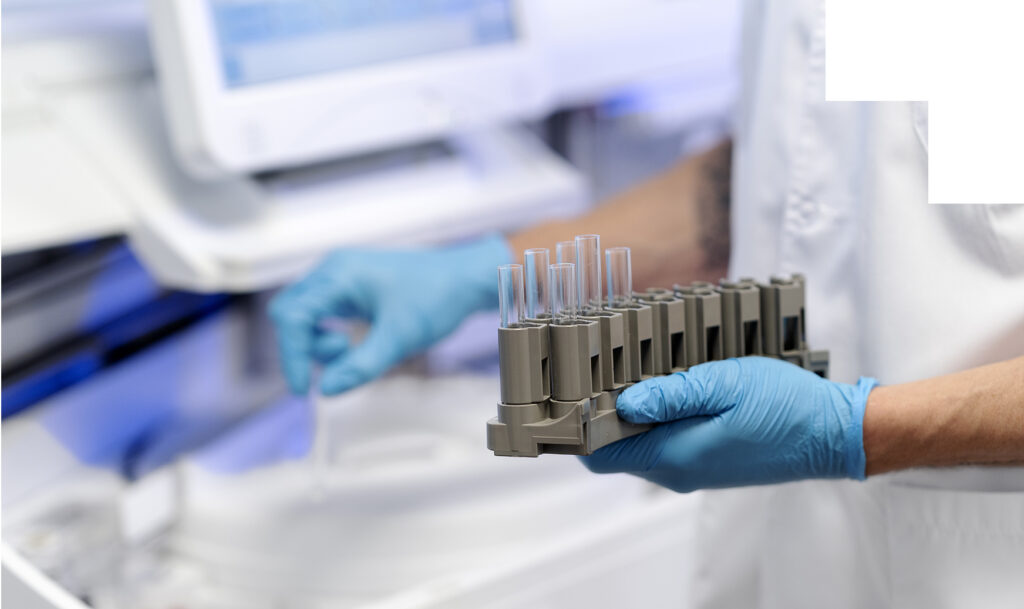
IVD AND DIAGNOSTICS
Our focus at CELLXCHANGE is Cancer Biomarker Innovations to transforming the early detection and diagnosis of cancer and rare diseases.
Our goal is span from cutting-edge biosensors and AI-driven analyses to novel blood tests and non-invasive screening tools. Below is an overview of the most significant areas that we are working on:
AI-Driven Multi-Biomarker Testing
A new prostate cancer test developed by EDX Medical utilizes artificial intelligence to analyze over 100 biomarkers from blood and urine samples. This approach achieves a 96% accuracy rate, significantly outperforming traditional PSA tests, which have approximately 50% accuracy. The AI system not only detects cancer but also identifies disease subtypes and aggressiveness, facilitating personalized treatment plans.
EPIC-Seq for Non-Invasive Cancer Detection
EPIC-Seq is a sequencing technology that analyzes epigenetic and transcriptional signatures in cell-free DNA, enabling non-invasive detection and classification of cancers such as non-small cell lung cancer (NSCLC) and diffuse large B-cell lymphoma (DLBCL). It also holds promise in predicting patient responses to therapies like immune-checkpoint inhibitors.
Biosensors for Early Breast Cancer Detection
The National Institute of Technology, Rourkela, has developed a biosensor using a tunnel field effect transistor (TFET) design to distinguish between cancerous and healthy breast cells. This compact, low-cost device offers higher sensitivity without the need for additional chemicals, making it suitable for deployment in remote areas and even for home-based testing.
Rare Disease Biomarker Innovations
Rapid Blood Test for Rare Genetic Diseases
Developing a simple blood test that analyzes proteins in specific blood cells to identify disease-causing genetic mutations. This proteomic method can deliver results in as few as three days and is expected to increase diagnostic yields to 50-70% of suspected cases, reducing the need for invasive procedures like muscle biopsies.
Digital Biomarkers for Neurological Diseases
Digital biomarkers, derived from data collected through wearable devices and other digital tools, are being utilized to monitor rare neurological diseases. These biomarkers provide real-time insights into disease progression and patient responses to treatments, enhancing the precision of clinical trials and personalized care strategies.
